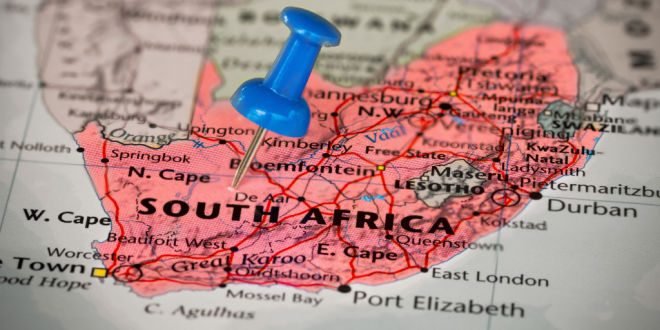In Africa’s most developed economy and gambling market, an opposition political party is seeking to shake up national gambling legislation with a new bill.
South Africa’s Democratic Alliance (DA), the centrist/centre-right opposition to the ruling African National Congress (ANC), has proposed the ‘Remote Gambling Bill, 2022’ to the country’s legislature.
The bill aims to regulate issuing of licences to be controlled by the relevant provincial authorities, providing for procedures relating to objections from issuing of licences, interactive/online gambling advertising, providing for the protection of minors and vulnerable persons; and ensuring that there is compliance with Financial Intelligence Centre Act (2001).
“By not regulating this gambling activity, the erosion of the rule of law and criminal activity is being encouraged, while the public is not effectively protected,” the DA explained. 
“Concurrently, a lack of regulation is resulting in revenue and jobs being lost to other gambling jurisdictions. The purpose of the Remote Gambling Bill is thus to fill the gap in law relating to interactive gambling.”
Reaching out to Sean Coleman, CEO of the South African Bookmakers Association (SABA) and MD of BetData, SBC gained some insights into South African developments from the operators’ perspective.
“I agree that a lack of regulation in the illegal/unauthorised gambling space is affecting the rule of law and criminality,” Coleman remarked when asked about the DA’s assessment that an absence of regulation is causing an ‘erosion of the rule of law and criminal activity’.
However, he added that: “In relation to the already heavily regulated gambling industry I do not.”
South African gambling activity is currently regulated by the National Gambling Act 2004 together with nine independent provincial gmabling acts, with an updated Gambling Amendment Act introduced four years later in 2008 to provide for the regulation of interactive gambling (online gambling).
However, as of yet, the Amendment Act has not been introduced by the country’s President – a position which has changed hands three times since 2008 – and so the DA seeks to speed up the process with its proposed legislation.
Coleman noted that South Africa’s licensing process and overall regulation requires improvement, which would be best completed by the immediate ‘implementation of national norms and standards’.
He added that attempts by the industry to encourage the government to do this, such as the SABA’s submission to the National Gambling Board in 2019, were unsuccessful, with authorities initiating ‘a process whereby they called for comments and submissions and then did nothing’.
As one of Africa’s largest economies by GDP – behind only Nigeria and Egypt – and with a vibrant sports scene including football, rugby, horse and greyhound racing and cricket, South Africa is one of the continent’s key target markets for international operators. 
Coleman broke down South American consumers’ sporting preferences, explaining: “Soccer followed by cricket and tennis although with the introduction of new betting products we are seeing a plateau in sports betting turnovers and cannibalisation to some degree as customers experience the instant gratification products.”
These include both retail and online verticals. International firms such as Betfred, which operates 53 betting shops in South Africa, alongside the online sportsbooks of Betting World and Sepels Sportsbet, and recently secured a ‘major shareholding’ in LottoStar.
One of the primary benefits of amending South Africa’s gambling legislation, in Coleman’s view, is that it would stabilise the market – as he previously noted, there is an unregulated market in South Africa, and such online casinos are not hard to find.
“I hold the view that this space is better regulated than outlawed because with technology these days much like drugs, if you want it you can find it,” he explained.
“Multiple online casinos face South Africa and are accessible by its residents, such as Springbok Casino as just one example.
“Online betting is doing well and will continue to do so. Online gaming requires a government paradigm shift.
“Whilst responsible gambling is paramount, we shouldn’t be fooled into a false sense of security that by not allowing online gaming (as opposed to betting) we are stemming the tide against the over proliferation of gambling. Just search the web and you can game to your heart’s content!!
Looking back at the development of the South African betting market, it is clear that some progress is being made, with an active retail and online sports betting space, as well as the emergence of some licenced virtuals, casino and slot titles.
With the DA proposing further legislation, there may be hope for changing norms and landscapes which could further stabilise the market and provide further opportunities for growth – but this may not be an easy process, as Coleman explained.
“The betting space has finally broken through and is now allowed to offer virtuals; some live casino and even some slots games online, and this is helping the South African market come to terms with these products.
“There are regulatory hurdles because having nine gambling boards, some agree to allow betting on certain products and some don’t.
“Imagine being a national bookmaker having to continuously filter your offering each time to your customers depending on the province you operate in for retail, yet they can live in the same province where they can’t bet retail on a product but they can bet online on the product.
“It’s ludicrous. Hopefully the national norms and standards will change the landscape. We live in hope….”










